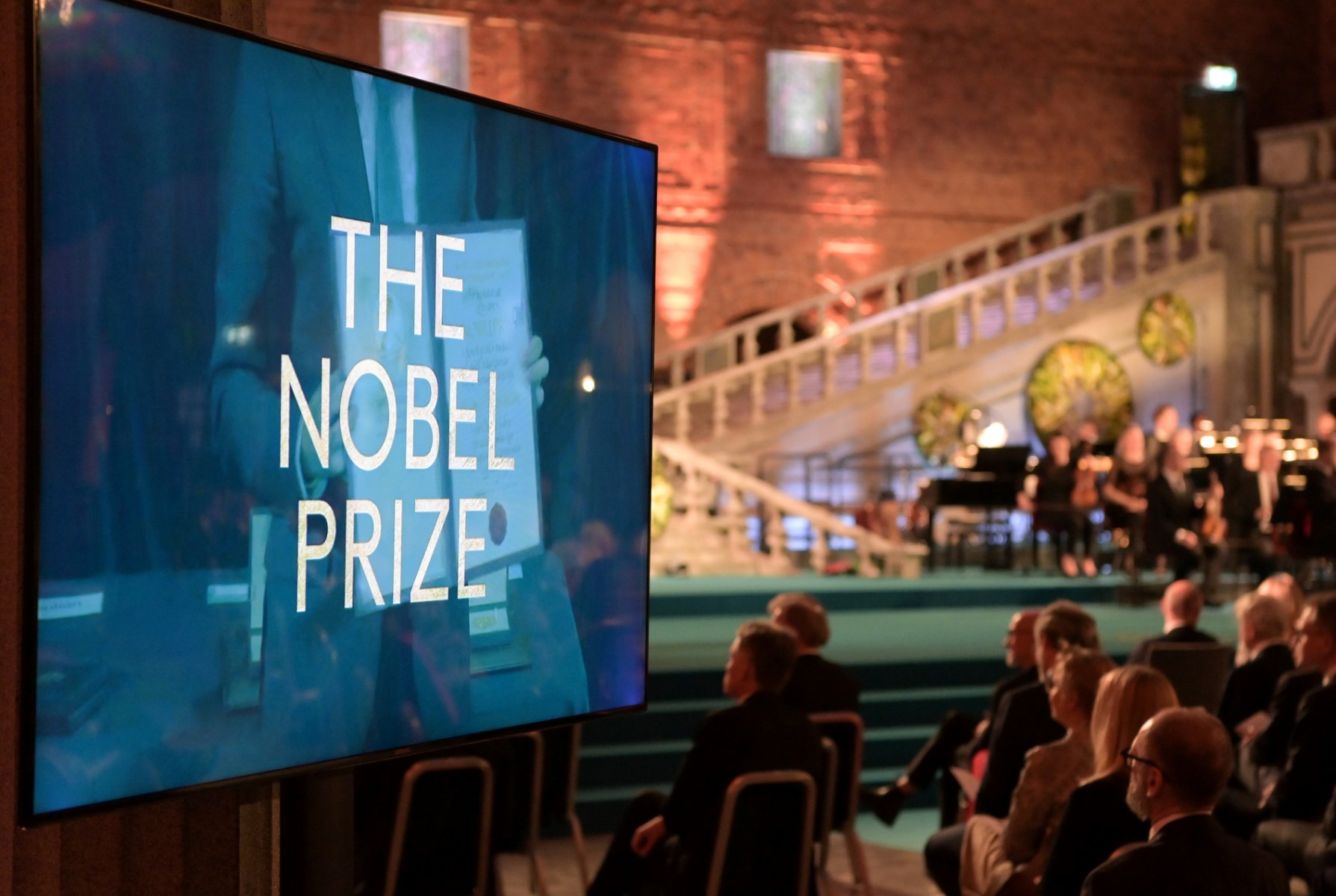STOCKHOLM, SWEDEN – The Nobel Foundation said on Saturday it was reversing its decision to invite ambassadors from Russia and Belarus to this year’s Nobel award ceremony in Stockholm, after the move sparked a backlash.
In 2022, the Nobel Foundation, which organizes the annual Nobel prize ceremony and banquet in Stockholm, decided not to invite the Russian and Belarusian ambassadors to the Stockholm award event because of the war in Ukraine.
They made the same decision regarding the Iranian envoy over the country’s crackdown on a wave of protests.
The Swedish foundation however said Thursday it was returning to its previous practice of inviting ambassadors from all countries represented in Sweden, sparking a wave of angry reactions.
The foundation said on Saturday that the decision was based on its belief “that it is important and right to reach out as widely as possible with the values and messages that the Nobel Prize stands for.”
It noted however that the strong reactions “completely overshadowed this message”.
“We, therefore, choose to repeat last year’s exception to regular practice — that is, to not invite the ambassadors of Russia, Belarus and Iran to the Nobel Prize award ceremony in Stockholm,” the foundation said in a statement.
Last year, the Norwegian Nobel Institute still invited all ambassadors to the Peace Prize ceremony it organizes in Oslo, and the foundation said this would be the case again.
“As before, all ambassadors will be invited to the ceremony in Oslo,” it noted.
The decision to once again invite the Russian and Belarusian representatives sparked ire in Sweden and abroad.
Victory for humanism
Ukrainian foreign ministry spokesman Oleg Nikolenko wrote on Facebook that the foundation should support efforts to isolate Russia and Belarus as “millions of Ukrainians suffer from an unprovoked war and the Russian regime is not punished for its crimes”.
Swedish Prime Minister Ulf Kristersson also said Friday he disagreed with the Foundation’s decision.
“I would not have done it if I were handling invites to an award ceremony and I understand that it upsets many people in both Sweden and Ukraine,” he said in a written statement to AFP.
Writing on X, formerly known as Twitter, Kristersson on Saturday welcomed the new decision.
“The many and strong reactions show that the whole of Sweden unambiguously stand on Ukraine’s side against Russia’s appalling war of aggression,” Kristersson said.
Several prominent Swedish politicians, including the leaders of the Center, Green, Left and Liberal parties, had said they would boycott the event over the Russian ambassador’s presence.
The glitzy event is held each year in Stockholm on December 10 when laureates in medicine, physics, chemistry, literature and economics receive their awards from King Carl XVI Gustaf.
A separate ceremony is held in Oslo on the same day for the Peace Prize laureate.
On Saturday, Nikolenko called the reversal a “victory for humanism.”
“We thank everyone who demanded the restoration of justice. We are convinced that a similar decision should be made regarding the Russian and Belarusian ambassadors to Oslo,” he said in another post to Facebook.








